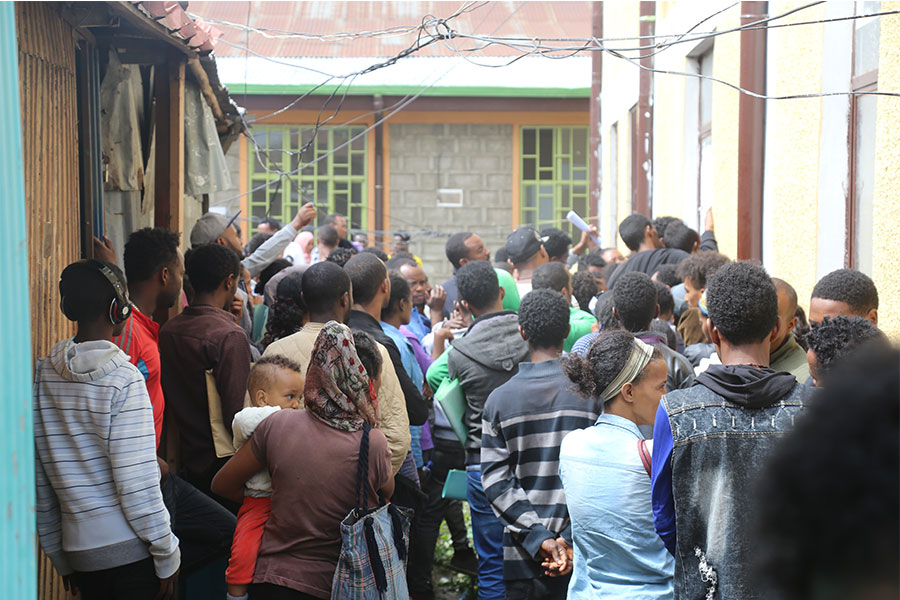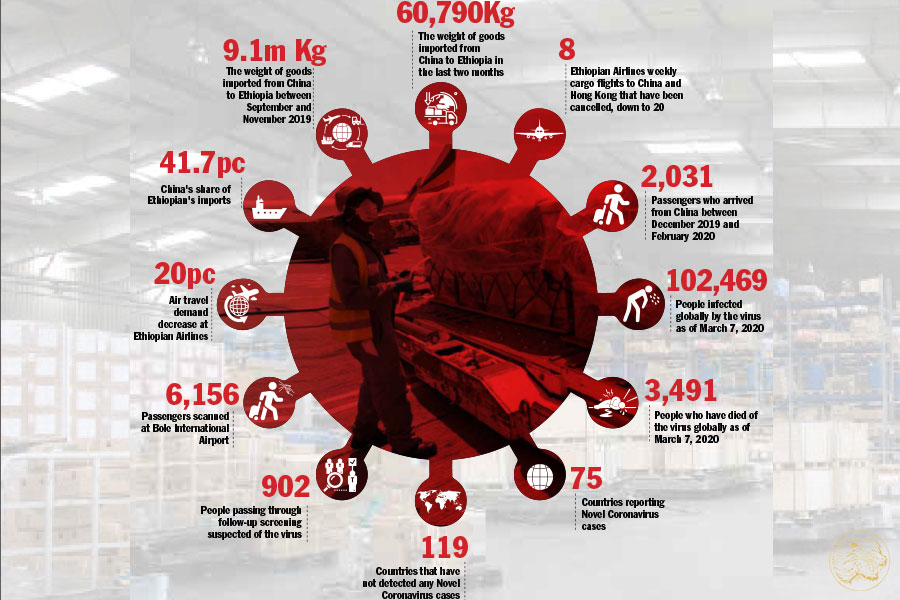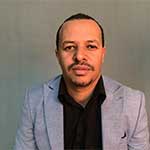
Agenda | Jul 09,2019
Nov 18 , 2023
By Eden Sahle
I have encountered fresh graduates with degrees in notable professions such as medicine and civil engineering, struggling to find employment. They are offered 3,000 Br or less wages, which barely covers their transportation costs, let alone their living expenses.
In the prevailing notion that unwavering perseverance and lofty aspirations guarantee success, the reality for the youth is far less certain. The fragility of a livable income challenges the assumption of meritocracy. Connections often take precedence over qualifications and academic merit. Even with exceptional academic achievements, securing a livable wage has become increasingly elusive.
Consider the case of a young medical doctor who graduated with distinction from St. Paul Millennium Medical College. After months of fruitless job hunting, he finally secured a position at a private clinic that pays him less than 4,000 Br. Six years of rigorous study and unwavering dedication to becoming a doctor were met with an unexpected reality.
Not only did he remain financially dependent on his family, but also grappled with the emotional trauma of accepting the situation. Unfortunately, this is the reality of many graduates.
It is no longer uncommon to find highly educated individuals working in fields that do not require their level of expertise.
Last week, I met a young nurse who, unable to find employment in her profession, was forced to take on a domestic helper position in one of my family's homes. Her years of academic pursuit, fueled by the hope of lifting her family out of poverty, were rendered futile.
In the face of circumstances beyond her control, she buried her dreams and resorted to menial labour to make ends meet. Similarly, many skilled and productive young people are discouraged and struggle to find employment.
Unlike conventional personal growth strategies, securing a decent job that aligns with one's skills and offers fair compensation is no longer solely determined by academic achievement or the potential for hard work.
Contrary to the experiences of our parents and their predecessors, Gen Z and millennials often find themselves where upward mobility seems to have halted, earning less than previous generations.
The unsurprising shackles of low wages, rampant unemployment and the crushing student loan debt burden bind the younger generation to a life of austerity. As a result, the younger generation faces a starker reality of poverty compared to its predecessors.
Economists point to the widening chasm of generational wealth, a gaping wound inflicted by past discriminatory practices. For the youth, the obstacles to homeownership, rental affordability and access to loans have intensified significantly.
The skyrocketing cost of living, coupled with an uncertain economic climate, further fuels the cycle of financial hardship. The inability to save or afford necessities has plunged a growing segment of society into deeper poverty.
While the aspiration to own a home and raise a family remains customary among younger generations, it also encompasses the desire for financial flexibility, the ability to travel, and the means to manage life's expenses amidst a deteriorating economic landscape.
The severe income inequality and the inability to build financial security can lead to a sense of hopelessness as individuals lose control over their economic well-being. A myriad of young people are forced to rely on their parents and relatives for housing, as rental costs consume their entire income. Financial struggles hinder their ability to establish independence and build their own families.
This predicament is deeply rooted in the education system crisis as indicated by the recent school leaving exam results, where only 3.2pc of 845,000 candidates managed passing grades, illustrating the problem. Just the previous year, of the 896,520 students who undertook the same examination, a mere 3.3pc scored above 50pc, only providing them with a false hope of obtaining a university education.
The value of formal education in securing a promising career and achieving a better standard of living is diminishing, obvious when house helpers with no formal education earn comparable wages to those who have invested years of their lives in pursuing higher education to improve their circumstances.
Poor access to quality education undoubtedly hinders access to decent and fairly compensated jobs. This is a primary reason why a significant portion of the youth seek to migrate, hoping for better living conditions and higher wages in developed nations.
In the heart of a nation teeming with potential, the dreams of its youth are tethered by the harsh realities of an economy that stifles ambition. Despite their unwavering dedication to academic excellence, the promise of a secure and fulfilling future remains elusive, a mirage shimmering in the distance.
PUBLISHED ON
Nov 18,2023 [ VOL
24 , NO
1229]

Editorial | Jun 12,2021

Commentaries | Oct 23,2021

Fortune News | Mar 07,2020

Commentaries | Jul 27,2019

Commentaries | Jan 11,2020

Photo Gallery | 179918 Views | May 06,2019

Photo Gallery | 170114 Views | Apr 26,2019

Photo Gallery | 161098 Views | Oct 06,2021

My Opinion | 137231 Views | Aug 14,2021

Dec 22 , 2024 . By TIZITA SHEWAFERAW
Charged with transforming colossal state-owned enterprises into modern and competitiv...

Aug 18 , 2024 . By AKSAH ITALO
Although predictable Yonas Zerihun's job in the ride-hailing service is not immune to...

Jul 28 , 2024 . By TIZITA SHEWAFERAW
Unhabitual, perhaps too many, Samuel Gebreyohannes, 38, used to occasionally enjoy a couple of beers at breakfast. However, he recently swit...

Jul 13 , 2024 . By AKSAH ITALO
Investors who rely on tractors, trucks, and field vehicles for commuting, transporting commodities, and f...

Nov 1 , 2025
The National Bank of Ethiopia (NBE) issued a statement two weeks ago that appeared to...

Oct 25 , 2025
The regulatory machinery is on overdrive. In only two years, no fewer than 35 new pro...

Oct 18 , 2025
The political establishment, notably the ruling party and its top brass, has become p...

Oct 11 , 2025
Ladislas Farago, a roving Associated Press (AP) correspondent, arrived in Ethiopia in...

Nov 2 , 2025
The National Bank of Ethiopia (NBE) has scrapped the credit-growth ceiling that had s...

Nov 2 , 2025 . By SURAFEL MULUGETA
The burgeoning data mining industry is struggling with mounting concerns following th...

Nov 2 , 2025 . By YITBAREK GETACHEW
Berhan Bank has chosen a different route in its pursuit of a new headquarters, opting for a transitional building instea...

Nov 2 , 2025 . By BEZAWIT HULUAGER
Nib International Bank S.C. has found itself at the epicentre of a severe governance...